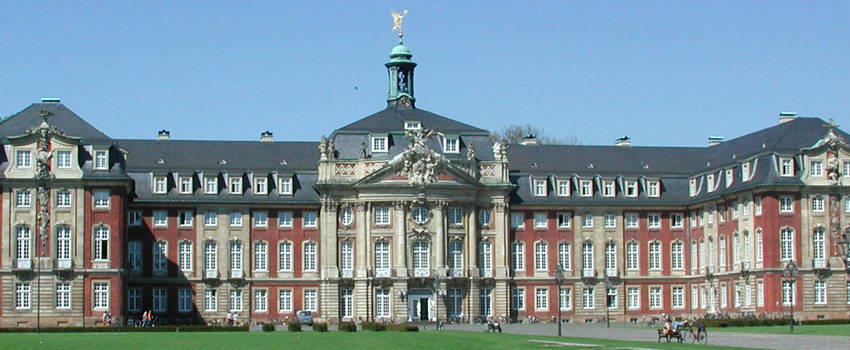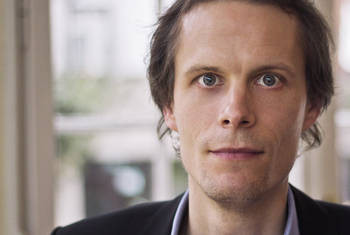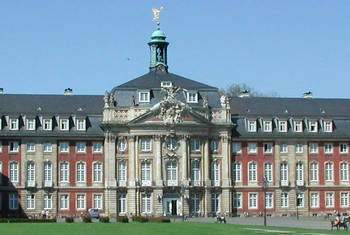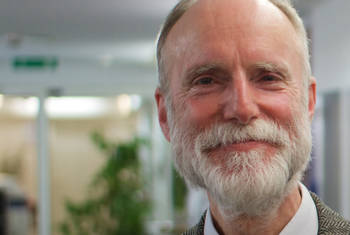Niels Petersen Do Constitutional Courts Use Balancing to Promote Judicial Activism?
Niels Petersen is a Professor of Public Law, International Law and EU Law at the University of Muenster and a Research Affiliate at the Max Planck Institute for Research on Collective Goods in Bonn (Germany). His research interests are law and social sciences, international law, comparative constitutional law and constitutional theory as well as antitrust law. He was a Hauser Research Scholar and Emile Noël Fellow at the New York University School of Law.
Area of Research
Constitutional Law, Constitutional Theory, International Law, Law & Economics
since 2015
Professor of Public Law, International Law and EU Law
University of Münster (Westfälische Wilhelms-Universität Münster) (more details)
Faculty of Law
2014
Visiting Professor of Public Law
University of Bayreuth (Universität Bayreuth)
2012-2013
Hauser Research Scholar and Emile Noël Fellow
New York University School of Law
2012
Visiting Professor of International Law
Hertie School of Governance
2007-2015
Senior Research Fellow
Max Planck Society
Max Planck Institute for Research on Collective Goods
2006-2007
Visiting Doctoral Researcher
New York University School of Law
2004-2005
Research Fellow
Max Planck Society
Max Planck Institute for Comparative and International Private Law
2010
Master in Quantitative Methods in the Social Sciences
Columbia University, New York
2008
Doctor of Laws
Goethe University of Frankfurt (Goethe-Universität Frankfurt am Main)
2005
Second State Exam in Law
Frankfurt Circuit Court
2003
First State Exam in Law
University of Münster (Westfälische Wilhelms-Universität Münster) (more details)
2001
Certificate of Transnational Law
University of Geneva
- Asian Journal of International Law
- Cambridge and Oxford University Press
- European Journal of International Law
- Göttingen Journal of International Law
- International Journal of Constitutional Law
- Journal of Empirical Legal Studies
- Leiden Journal of International Law
- American Society of International Law
- Asian Society of International Law
- Association Henri Capitant
- European Association of Law & Economics
- European Society of International Law
- German Society of International Law
- International Association for Philosophy of Law and Social Philosophy
- International Law Association, French and German Branch
- International Society of Public Law
- Society of Empirical Legal Studies
- Vereinigung der Deutschen Staatsrechtslehrer [Society of German Public Law Professors]
 © Peter Grewer
© Peter Grewer
University of Münster (Westfälische Wilhelms-Universität Münster)
Founded in 1780, the WWU Münster is a university with tradition. 250 courses of study, 43,000 students, a staff of 5,850 including 590 professors - as well as 550 partnership agreements with universities and other academic institutions all over the world. Münster University has developed a strong research profile in natural sciences, humanities, medicine, law and business administration. It targets top-level research in high-performance areas and combines this with promoting first-class junior research staff. (Source: WWU)
Map
In an empirical analysis of the German and the South African constitutional courts and the Canadian Supreme Court, the study presented in this video examines the use of the concept of balancing. Contrary to the common understanding, NIELS PETERSEN shows that courts do not use balancing to engange in judicial activism. Instead, they restrain themselves and employ proportionality as an instrument of rationality review, i.e. a means for compensating political market failures.
LT Video Publication DOI: https://doi.org/10.21036/LTPUB10012
Verhältnismäßigkeit als Rationalitätskontrolle. Eine Rechtsempirische Studie Verfassungsrechtlicher Rechtsprechung zu den Freiheitsgrundrechten
- Niels Petersen
- Jus Publicum 238
- Published in 2015









